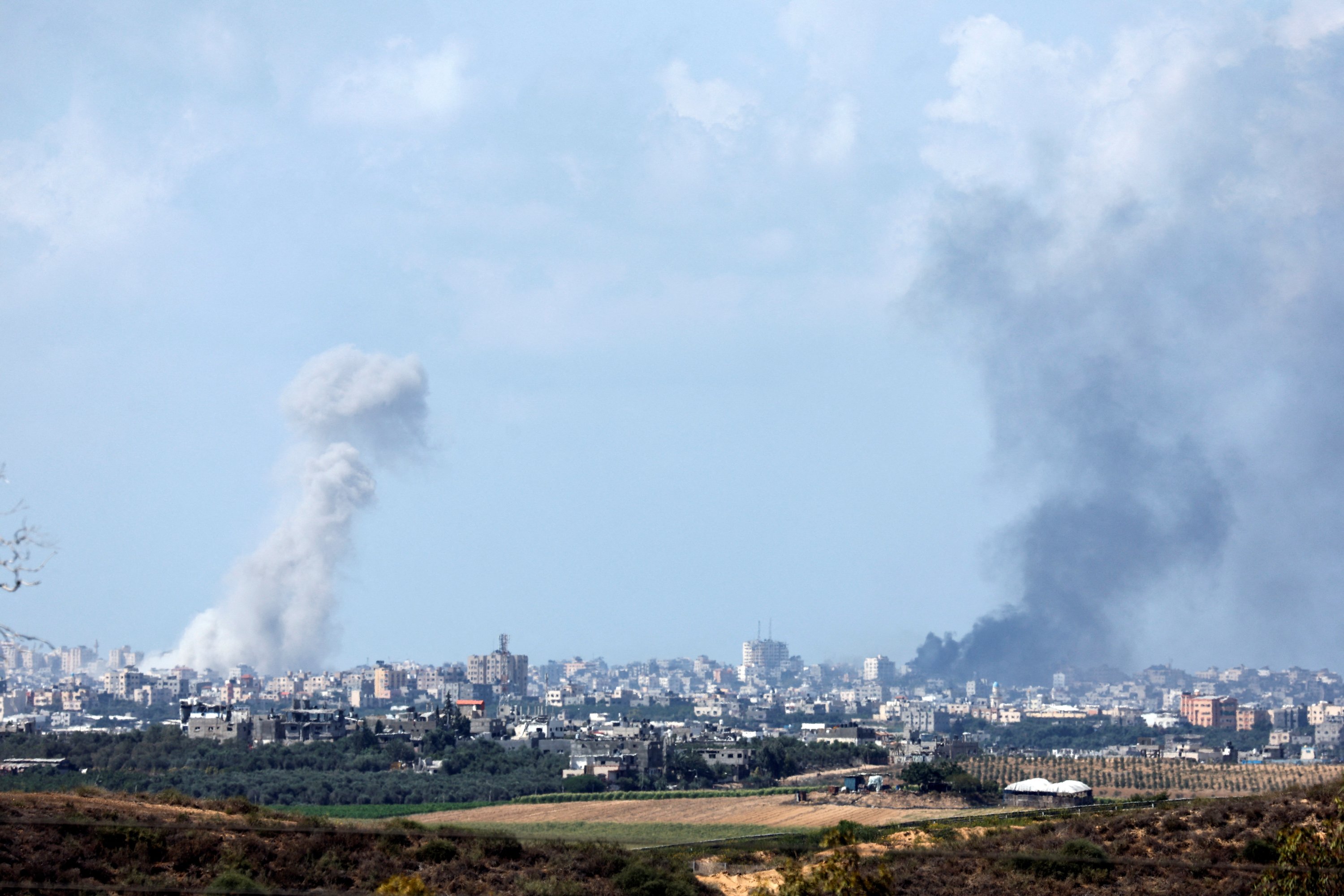Last Friday, Israel asked the United Nations to relocate 1.1 million Palestinians to the south of Gaza within 24 hours. Although the U.N. warned that such an evacuation was impossible and likely to entail devastating humanitarian issues, the Israeli army continues to prepare for a
ground operation after a weeklong heavy bombardment. Driving the Palestinians to the south is widely seen as Israel’s multistep plan to completely eliminate Hamas’ entire capacity – including its tunnels. Experts argue that Tel Aviv made that decision to make up an excuse to kill civilians and reach its actual goal of making Gaza unhabitable. There is talk of the possibility of Israel forcing all Palestinians to move from Gaza, which it has blockaded for 16 years, to Egypt. It goes without saying that such a development would not only put Egypt in an extremely difficult position but also trigger humanitarian crises and radicalization in the region. Let us recall that the U.S. invasions of Afghanistan and Iraq, along with its decision to turn a blind eye to the humanitarian tragedy in Syria, helped various radical organizations to emerge or grow stronger.
Having dealt with occupation and exile for 75 years, the vast majority of Palestinians are unlikely to end their resistance and leave Gaza. Indeed, a story that Bloomberg published on Friday summarized the plight of the Palestinians in Gaza: The vast majority of Gaza’s residents consists of refugees from towns and villages in Israel and the West Bank. They are afraid that they won’t be able to return to the last remaining piece of their homeland.
Tragedy to be ashamed of
Asking the Palestinians in Gaza to choose between dying in an aerial bombardment and being forced into exile represents a tragedy of which the international community must be ashamed. Countries referring to Israel’s right to self-defense need to make a more active diplomatic effort to protect the Palestinians’ human rights – starting with the United States, the European Union, the United Kingdom and Russia. The Biden administration, which deployed two aircraft carriers to the region, should heed the U.N.’s warning and stop civilian casualties and the total destruction of Gaza. Supporting Israel’s national security must not automatically mean escalating violence or disregarding exile and massacre.
That is why President Recep Tayyip Erdoğan’s criticism of the U.S. has highlighted those obligations. Some countries might benefit from this latest conflict in the Middle East with the potential to start a new period of violence and uncertainty. Russia and Iran immediately come to mind. Commentators argue that Moscow welcomes the opportunity to act more freely in Ukraine and Tehran enjoys having halted normalization between Saudi Arabia and Israel. Does the U.S. benefit from conflict? Let’s just say that a new wave of conflict, which threatens to shift Washington’s focus from the Pacific to the Middle East, won’t serve U.S. interests.
Deterrence is key
The Biden administration’s reluctance to blame Iran for the Oct. 7 attacks suggests that the U.S. does not want violence to spread. It is important to note, however, that deterrence is key to preventing the Israeli-Palestinian conflict’s spread to Lebanon, Syria, Iran and beyond. In this sense, Tel Aviv needs to hear a different version of the warnings issued to Hezbollah and Tehran. That is no easy task in a region where violence erupts frequently and there are clashing interests all around. Hence the need to support Türkiye, which was the first country to
send humanitarian aid to Gaza by plane, in its efforts to contact both parties and any stakeholders with potential influence over the crisis. The U.S. – and, more broadly, the West – must keep in mind that they will be blamed for any civilian deaths caused by Israel.
Forcing the Palestinians out of Gaza won’t address Israel’s security issues. If anything, it will make them worse.
[Daily Sabah, October 16, 2023]







